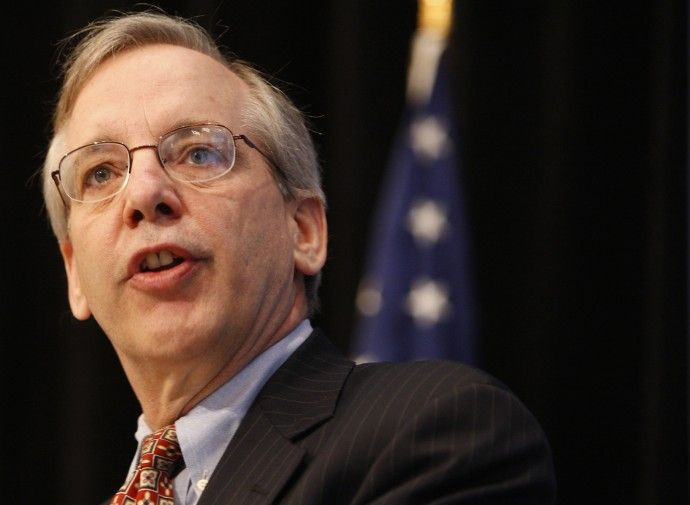Fed's Dudley: Dovish Tone Rekindles Hope Of QE3

A top Federal Reserve official said Monday that the U.S. economy isn't out of the woods yet, although recent statistics have been a bit more upbeat, giving investors renewed hope of a third round of quantitative easing, or QE3.
The incoming data on the U.S. economy has been a bit more upbeat of late, suggesting that the recovery may be getting better established, said William Dudley, president of the Federal Reserve Bank of New York, in prepared remarks to be delivered to the Long Island Association in Melville, N.Y.
But, while these developments are certainly encouraging, it is far too soon to conclude that we are out of the woods in terms of generating a strong, sustainable recovery, Dudley added.
Recent strong data on the health of the U.S. economy has allowed markets to pare back some of their strong views on QE3, believing that the recovery is gaining traction naturally.
At the most recent meeting of the central bank's Federal Open Market Committee, Fed officials pledged to keep near-term interest rates unchanged at ultra-low levels and offered few clues about plans for further easing of monetary policy.
Investors interpreted the statement released after the FOMC's meeting as a warning not to expect a new round of bond-buying from the Fed anytime soon. That sent Treasury prices tumbling and triggered last week the biggest two-day selloff since October. Some economists are forecasting that investors could be seeing the beginning of the end for the bull market in bonds that began in early 1980s.
Dudley's speech Monday was being closely watched by investors to gauge the likelihood of QE3.
The central banker didn't directly mention QE3 in the text of Monday's speech, but he stressed that recent improvement could be largely due to the unusually mild weather, which gave the economy a temporary boost.
The United States has experienced unusually mild weather over the past few months, with the number of heating degree days in January and February about 17 percent below the average of the preceding five years, Dudley said. I suspect that it temporarily boosts economic activity overall.
Dudley also pointed out that the economic data looked brighter at this point in 2010 and again in 2011, only to fade as we got into the second and third quarters of those years.
He stressed that real economic activity has yet to be strong enough on a sustained basis to make a big dent in the overall amount of slack in the U.S. economy.
Although growth in the fourth quarter was stronger, most of that was due to inventory accumulation and increases in final sales was actually quite weak, Dudley said.
Historically, a quarter in which inventory investment makes a significant growth contribution is typically followed by a quarter in which that growth contribution is modest or even negative.
That appears to be what is shaping up for the first quarter of this year, Dudley told the audience.
Based on available data, he expect real gross domestic product to expand at around 2 percent during the first quarter, after growing 3 percent in the last three months of 2011.
Dudley also raised concerns about the sharp decline in the unemployment rate, which tumbled from 9 percent September to 8.3 percent in February.
It is important to recognize that about half of that decline was due to a declining labor force participation rate, Dudley emphasized. In fact, had the labor force participation rate not declined from around 66 percent in mid-2008 to under 64 percent in February, the unemployment rate would still be over 10 percent.
He also urged business leaders not to lose sight of the fact the economy still faces significant headwinds and meaningful downside risks, including disappointing growth abroad and further disruptions to the supply of oil as well as higher oil prices.
Regarding inflation, Dudley believes it will moderate further in 2012, giving the Fed room to implement further easing.
The year-over-year rate of consumer price inflation has slowed in recent months, and despite the recent rise of gasoline prices, we expect inflation to moderate further in 2012, Dudley said.
© Copyright IBTimes 2025. All rights reserved.






















